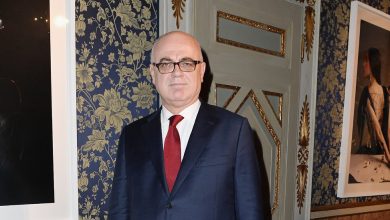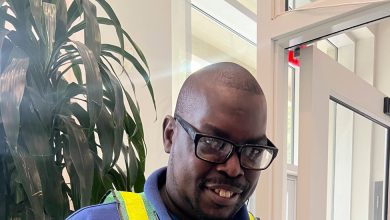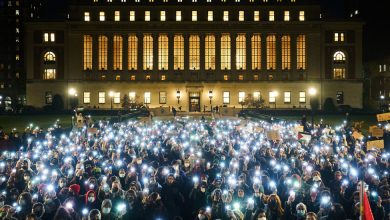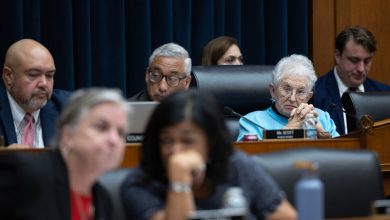David C. MacMichael, C.I.A. Whistleblower, Dies at 95

David C. MacMichael, an intelligence analyst who resigned from the C.I.A. in 1983 to go public with evidence that the Reagan administration was preparing to launch a coup against the government in Nicaragua, a revelation that would in part lead to what is known as the Iran-Contra Affair, died on May 16 at his home in Front Royal, Va. He was 95.
His daughter Alicia Williamson confirmed the death.
A history professor turned contract analyst for the C.I.A., Dr. MacMichael was one of the agency’s leading experts on Latin America at a time, in the early 1980s, when fears were rising over the Soviet Union’s support for left-wing governments in the region.
Of particular concern was Nicaragua, where the Sandinistas, a socialist movement, had taken power in 1980. The Carter administration initially provided aid to the new government, but suspended it after evidence emerged that the Sandinistas were funneling Soviet weapons to rebels in El Salvador.
When Ronald Reagan took office in 1981, he maintained that the Sandinistas would destabilize the region, and immediately began pushing for aid to right-wing rebels known as the contras.
At the time, Dr. MacMichael’s job was to help write intelligence briefings about Central America. What he saw startled him: The Carter administration’s pressure tactics had worked; the flow of aid and weapons from Nicaragua to El Salvador had slowed to a trickle. Yet the Reagan administration continued to insist otherwise, and Dr. MacMichael had evidence that the president had approved a plan to build a secret military force to invade Nicaragua.
Fearing a repeat of C.I.A.-backed coups in Iran, Guatemala and Chile, Dr. MacMichael refused to stay silent. He resigned from his C.I.A. contract in 1983, then traveled to Nicaragua at his own expense to investigate. He called on members of Congress. And finally, in 1984, he took what he knew to The Washington Post and The New York Times.
“There is a point where exaggeration becomes impossible to distinguish from prevarication,” he told reporters. “If ever a major public policy of the United States has been justified on such flimsy grounds, such patently unprovable claims, I cannot recall it.”
The administration pushed back — Secretary of State George Schultz said Dr. MacMichael “must be living in some other world” — but the revelations had an immediate effect.
Congress rejected Reagan’s request for more aid to the contras. Cut off, the administration turned to an illegal effort, already established, to sell arms to Iran and use that money to fund the contras. It was a program that, when exposed in 1986, became one of the biggest political scandals of the 20th century.
An expert in Latin American history, Dr. MacMichael saw the Nicaragua episode as just one more in a long list of attempts by the United States to exert its will over the region.
“We are, in a very real sense here, dealing with an obsession, and it is not one limited to the current administration,” he said in a 1985 speech. “The United States is used to wielding absolute power in Central America.”
David Charles MacMichael was born on June 6, 1926, in Albany, N.Y., and raised in Leonia, N.J. His father, Charles MacMichael, worked for the H.J. Heinz company, and his mother, Gertrude (Mahood) MacMichael, was a homemaker.
David enlisted in the Marine Corps out of high school, in 1946, and served two years before enrolling at Hampden-Sydney College in Virginia on the G.I. Bill. He graduated in 1952 with a degree in history, and immediately went back to the corps, this time as an officer.
The Marines sent him to Korea, where in 1953, during the final weeks of the war, he was seriously wounded in a mortar attack. He spent more than a year recovering, then returned to service once again, this time to be trained as an expert in counterinsurgency.
He married Martha Ostrander in 1953. They later divorced. He married Barbara Jentsch, a journalist, in 2003. In addition to his daughter Alicia, his wife survives him, as do his brother, Charles MacMichael; his sister, Joann Marsh; another daughter, Stephanie Kolkka; and his son, John MacMichael.
Dr. MacMichael resigned his commission in 1959 to pursue a doctorate in history at the University of Oregon. He completed his dissertation, on American relations with the Dominican Republic, in 1964, and that fall began teaching at Dominican University of California, in San Rafael, north of San Francisco.
Given his military and academic background, Dr. MacMichael was not surprised when, soon after he started teaching, he was recruited by the Stanford Research Institute, at the time an arm of Stanford University that held contracts with the Defense Department and the C.I.A.
The institute sent him to Thailand for three years, at the height of the Vietnam War, and he remained with the group until he began working directly with the C.I.A. on Nicaragua in 1981.
By blowing the whistle on the C.I.A., Dr. MacMichael joined a small group of intelligence insiders-turned-government critics, like Philip Agee, Daniel Ellsberg and Ralph McGehee. Like them, he became a regular on the left-wing lecture and film circuit, appearing as a talking head in documentaries like “The Panama Deception” (1992), an Academy Award-winning exposé about the 1990 invasion of Panama.
Dr. MacMichael co-founded a number of organizations for dissidents from the U.S. intelligence community, including the Veteran Intelligence Professionals for Sanity and the Center for the Study of Covert Action.
When Nicaragua sued the United States in the World Court in the Netherlands, he testified as a key witness. The United States refused to participate in the case, which it lost in 1987. The American government then refused to pay court-ordered reparations, and Nicaragua later withdrew its complaint.
Though his whistle-blowing made him a pariah among his former colleagues in the intelligence community, Dr. MacMichael said it was worth it.
“You find yourself in this situation maybe once in a lifetime,” he said in a 2006 interview with the website The Ethical Spectacle. “You only come to the plate once and had better take your swings. I took my swings. That was my one ethical plus in a lifetime of unethical behavior.”




